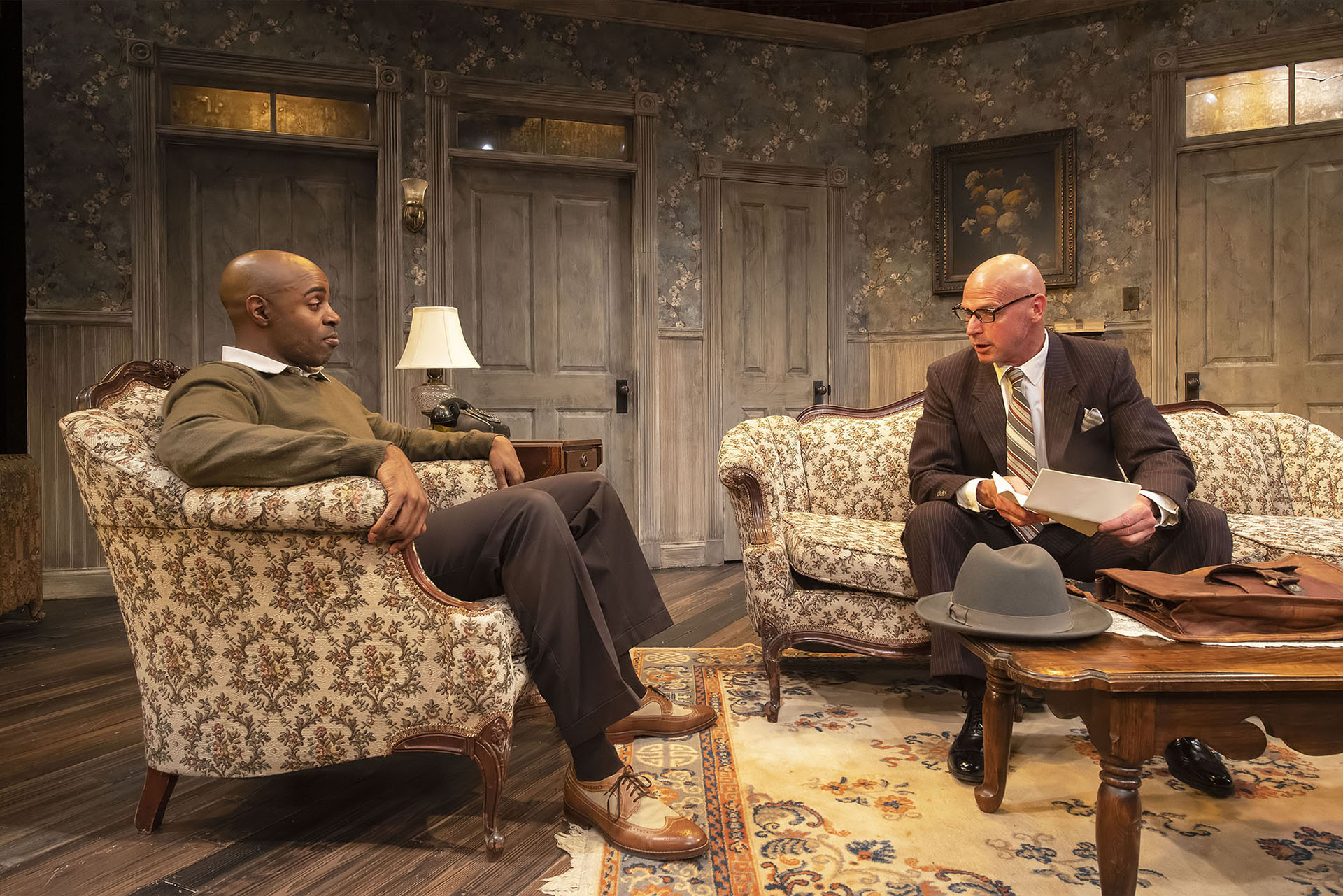‘A Raisin In The Sun:’ Dreams Deferred

‘A Raisin in the Sun’ is qualified as an African-American play, since most of the cast is black, racism is one of the main issues, and assimilation and segregation are themes explored.
But Lorraine Hansberry’s 1959 Broadway hit has always appealed to audiences regardless of color — it’s a hard-hitting look at the American Dream which, it seems, has to do with coming into a large amount of money without actually working for it, a sad-but-true unflinching look at the only country which has the words “pursuit of happiness” as part of its credo.
The play — part of Bay Street’s Literature Live! series which offers matinees over the course of the run to local schools and educators for free, and evening shows for regular theatergoers — centers on the Younger family, living in a cramped apartment in a racially segregated area of Chicago. Lena, the widowed matriarch, is about to come into a $10,000 life insurance policy from her husband, and her two children who live with her, along with her son’s wife and child, all have plans for the money.
It’s a hard-hitting look at the American Dream which, it seems, has to do with coming into a large amount of money without actually working for it.
Lena (beautifully portrayed by Cooki Winborn) has a dream to buy a house for her family, and she uses some of the money to put a down payment on a real home. But it’s in a white neighborhood, as she and her family are painfully reminded when visited by a member of Clybourne Park’s civic association, who offers to buy them out. The Youngers are then faced with the question, as is the audience: What is more important, financial gain or pride in who you are and what you represent?
Even though her children have big dreams, Lena remembers a time when African Americans still picked cotton and were the subjects of lynch mobs and outward hatred.
“Once upon a time, freedom used to be life,” says Lena quietly, in a telling moment. “Now it’s money. I guess the world really did change.”
“It was always money,” Walter responds. “We just didn’t know it.”
Walter Lee, played with blinding brilliance by Chauncy Thomas, is Willie Loman a decade after that play was a hit; a man who has big dreams and ambitions, passionate and volatile, pushed to the brink in a dead-end job.
His sister, Beneatha (Cassia Thompson), is a feminist intellectual 20-year-old on her way to being a doctor and social activist, wooed by two men who are exact opposites — the assimilated and wealthy George Murchison (Michael Chenevert) and Joseph Asagai (Jonathan Farrington), a Nigerian exchange student with plans to go back to Africa, and who provides Benny with a heaping dose of truth about herself.
Walter’s wife, Ruth (Erin Margaret Pettigrew), is the glue of the family, and has her own dreams and secrets. There’s also young Travis (Kaden Amari Anderson), and Justin Jarrell as Bobo. Joe Pallister plays the only Caucasian, Karl Lindner — inside joke to local audiences; Pallister played the same part in Bruce Norris’s “Clybourne Park,” a spin-off of “Raisin,“ when produced in 2012 by the Hampton Theatre Company.
The whole cast is stellar, and received a standing ovation on opening night, and apparently at the school matinees as well. Lydia Fort directs the 95-minute production with deftness, sensitivity, and vision, and as always, the sets and costumes, lighting, and sound are superb.
The story is based on Hansberry’s own experiences as her father battled in court to reverse “red-lined” communities and move to an all-white neighborhood. She died of cancer at only 34 years old, but not before seeing “Raisin“ translated into more than two dozen languages and performed around the world. And all of this before the 1964 Civil Rights Act, which came shamefully late in this country’s timeline.
The title is from the poem “Harlem” by Langston Hughes: What happens to a dream deferred?/Does it dry up like a raisin in the sun?
Don’t let this one get away. In production through December 1, tickets are available at www.baystreet.org.
bridget@indyeastend.com


